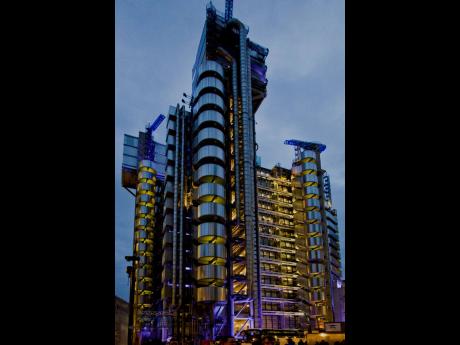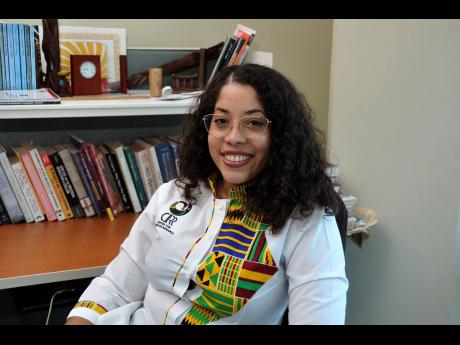Mia McMorris | We are still waiting Lloyd’s of London
In November 2023, Lloyd’s of London issued a follow-up to their 2020 apology for their role in the slavery system, committing to inclusion and diversity practices within their company, outreach, and support to disadvantaged communities and publication of their archive of colonial materials, not to mention a £52 million fund to be used towards providing repair. Truly, this all sounds promising, an apology followed up with actual deliverables; however, we, like our colleague Kehinde Andrews, based at Birmingham City University, wonder at the timing and the possibility of reparation washing by the insurance company.
Insurance companies, along with institutions like banks, were the backbone of the Transatlantic Trafficking in enslaved Africans (TTA). They provided the means for slavers to transport trafficked Africans, plantation owners to fund their colonising pursuits in Africa and the Caribbean and to enforce the ideology of Africans as chattel until it no longer benefited them. They had a clear understanding of what their place was in the cycle. Professor Hilary Beckles, in Britain’s Black Debt, reminded us that insurance laws dictated that “the insurer takes upon him the risk of the loss, capture, and death of slaves or any other unavoidable accident to them: but natural death is always understood to be expected; by natural death is meant, not only when it happens by disease or sickness but also when the captive destroys himself through despair, which often happens, but when slaves are killed, or thrown into the sea in order to quell insurrection on their part, then insurers must answer.”
When the Zong Massacre went to court, the ideas of property made the ship’s insurance, Gilbert and Associates, liable to a claim they did not wish to fulfil. The case, Gregson vs. Gilbert, came before the courts and the owners of the slaver Zong, Gregson and Associates, the ship’s captain, Luke Collingwood, and crew attempted to justify the deliberate drowning of 122 Africans, stating that they were property. Initially, they won the case. However, the insurance company won in the appeal. Gilbert and Associates enforced the above legislation, acknowledging the lives of the captured Africans as people – not chattel or property. This 18th-century case would disrupt narratives that long prevailed about Africans as property because it benefited insurance companies.
FIRST MENTIONED
Lloyd’s of London was first mentioned in the London Gazette in 1688 as a coffee house with a good reputation for shipping coffee. Over the next few decades, it built up a reputation in the shipping industry for their service for not only transporting coffee, but also for providing intelligence on the seas. In 1764, it was again identified in the press for its connection as insurers of a vessel, which had to be condemned in St Kitts. They did not issue a payment for the claim. Lloyd’s formally transitioned to an insurance company in 1771 having set up shop at 5 Pope’s Head Alley with a team of underwriters. Digitised records from the company, now available at underwritingsouls.org, show ‘risk books’ dated 1804 -1807 cataloguing the names of enslaved Africans trafficked from Africa to markets for sale. The archive also displays the policies for several ships, portraits, advertisements, and letters, with one coming from Thomas Dunn in Falmouth, Jamaica, 1799, regarding the ‘shipment of 44 tons ‘Fustice’, 2 pieces of Muscavado Sugar and 26 ‘Punch[eons]’ Rum and ‘money from Mr Jn Campbell will be due in July, for the three Negroes sold him’.
Lloyd’s of London, alongside Greene King, apologised for their roles in the transatlantic trafficking in enslaved Africans in 2020 as the Black Lives Matter Campaign gained traction, spurred by the lynching of George Floyd. Floyd’s murder facilitated a global push against racial motivated crimes and brought light to the ongoing prejudice in law enforcement tracing back to the colonial era. It has become more popular for corporations and institutions that can be linked to colonial misdeeds to partake in the act of ‘reparation washing’. That is announcing their connection, apologising publicly, maybe even donating money sometimes and continuing with no tangible change to their business practices.
ENDOWMENT
Lloyd’s of London has now followed up their 2020 apology with the announcement of and endowment towards regions affected by the TTA last November. For clarity, Lloyd’s of London has committed to the following:
• £12 million on a programme to improve recruitment and progression for black and other ethnic minority employees.
• £40 million pounds in regions affected by transatlantic trafficking in enslaved Africans: $25 million from the company’s Central Fund and administered by the African Development Bank, $25 million administered by the Inter-American Development Bank in support of the UN Sustainable Development Goal of ‘reduced inequality’.
• The publication of research into the financial interests that made the trafficking possible through the Johns Hopkins University-based project Black Beyond Data/ Underwriting Souls funded by the Mellon Foundation.
These commitments are extremely heartening, especially as we consider the wealth of information that can be found in the archival records housed by Lloyd’s of London. Along with the promised funds to affected regions, this is a major coup for the movement. Apology, commitment to non-repetition and repair are the cornerstone of what we strive for in the reparation movement. We are seeing in the above commitments that there was some thought when creating this proposal of reparation by Lloyd’s.
However, when we look at the details, we must not lose sight of who is benefiting from this endowment. Last year alone, Lloyd’s of London reported a £3.9 billion profit at the half-year mark. In the same breath we must ask why they are not contributing more to the integrity of their hiring process, and, why only £12 million pounds? Another question is why are they not giving more to their community to ‘reduce inequality’? These questions are not meant to undermine the efforts made by Lloyd’s but to ensure that there is accountability within the movement. We cannot forget those who were lost to this tragedy called the TTA and the role played by these institutions.
Mia McMorris, is a junior research fellow at Centre for Reparation Research. Send feedback to reparation.research@uwimona.edu.jm


